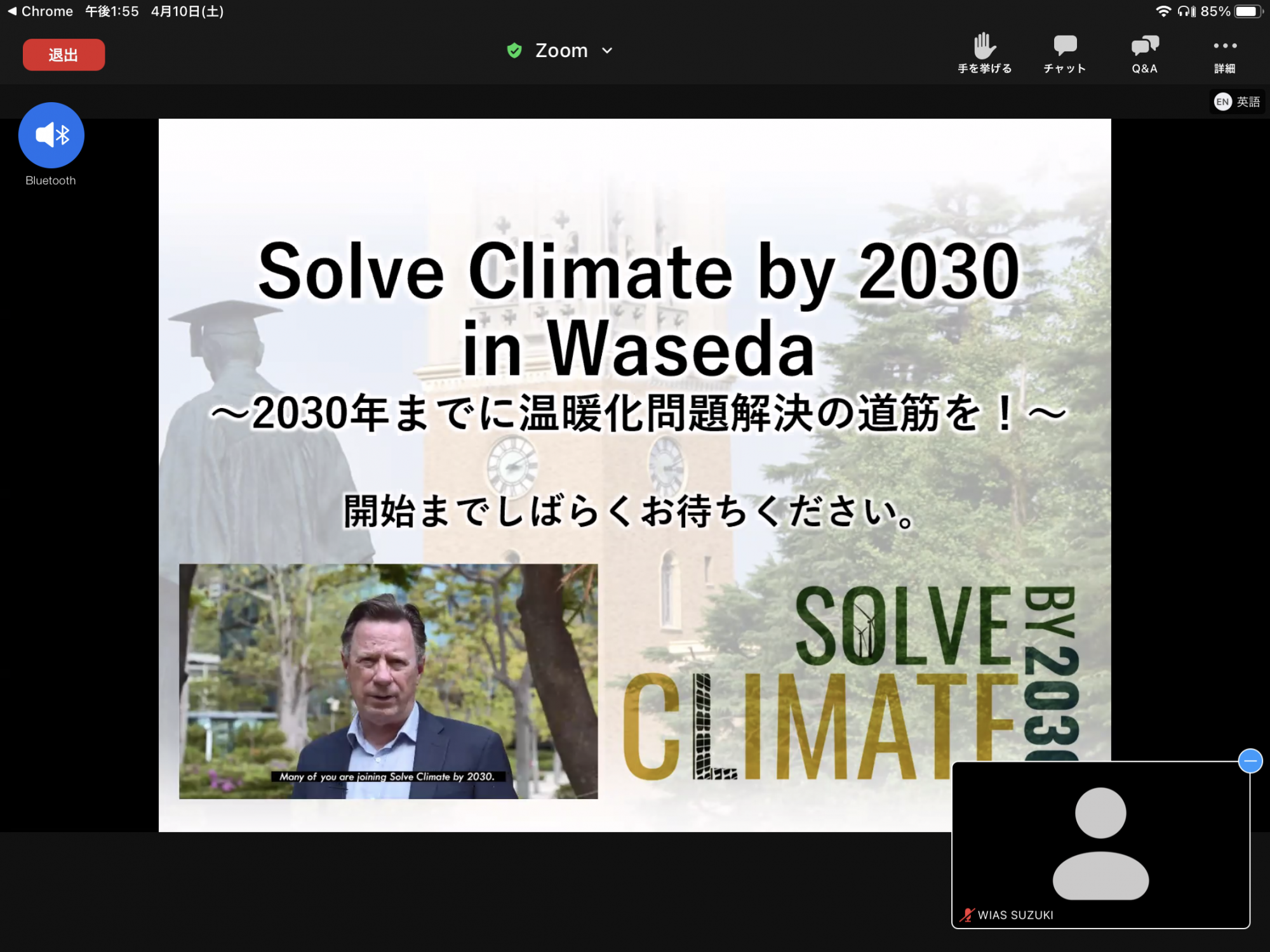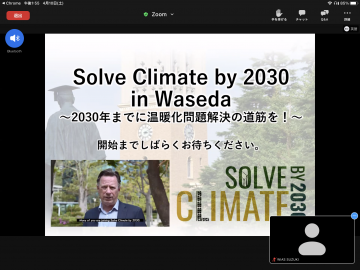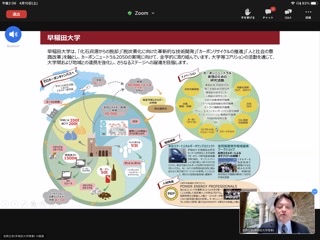Waseda holds online international symposium addressing climate issues
Wed, May 26, 2021-
Tags
On April 10, three institutes at Waseda University—namely the Institute for Advanced Social Sciences (IASS), the Research Institute for Environmental Economics and Management (RIEEM) and the Waseda Institute for Advanced Study (WIAS)—jointly held an online symposium “Solve Climate by 2030 in Waseda” aimed at addressing climate and environmental issues. At the event, experts from respective fields delivered lectures to more than 200 high school and university students.
Solve Climate by 2030 is a climate education initiative coordinated by the Open Society University Network (OSUN) that cooperates closely with the Association of Pacific Rim Universities (APRU), of which Waseda University is a member. Some of OSUN’s other international members include the University of British Columbia, the Australian National University, Oakland University and the National University of Singapore. At present, it aims to attract participation from more than 100,000 students worldwide.
At the beginning of the symposium, Vice President Masahiko Gemma took some time to address the participants and shared Waseda’s declaration on committing to carbon neutrality by 2050. Specifically, the four areas which the University is committed to are “Breaking Free From Fossil Fuels,” “Addressing Decarbonization Through Novel Research and Development,” “Promoting Carbon Recycling” and “Raising Awareness on Climate Change.” In his address, Vice President Gemma also stressed the importance of student participation in finding solutions to solve global warming by 2030.
In the first lecture, Director Mika Ohbayashi from the Renewable Energy Institute gave a lecture on approaching decarbonization with energy conversion. Making comparison with overseas nations, she shared how Japan’s efforts on expanding renewable energy is relatively slow and the cost incurred is high. She stressed the importance of increasing renewable energy and reducing carbon dioxide emission in addressing climate change.
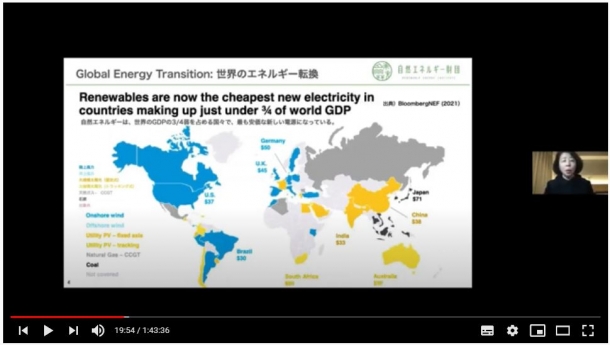
In the following lecture by Rika Sueyoshi, founder of Ethical Association, she talked about the importance of ethical consumption in fighting against climate change. “As individuals, we can help reduce and control the amount of carbon dioxide emission by purchasing eco-friendly products,” said Sueyoshi. “If everyone plays a small part, we can make a huge impact collectively.”
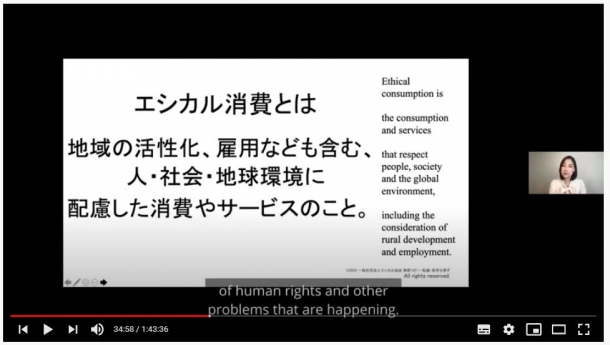
Hajime Kamiya—director for Urban Energy Promotion, Climate Change and Energy Division from the Bureau of Environment (Tokyo Metropolitan Government)—gave the third lecture on Tokyo’s efforts in decarbonization by promoting hydrogen energy. “To succeed in decarbonization, we need the efforts and cooperation of every single person. I would like you to think about what you can do as an individual to achieve that,” said Kamiya as he emphasized how combating against climate change is not solely a government issue.
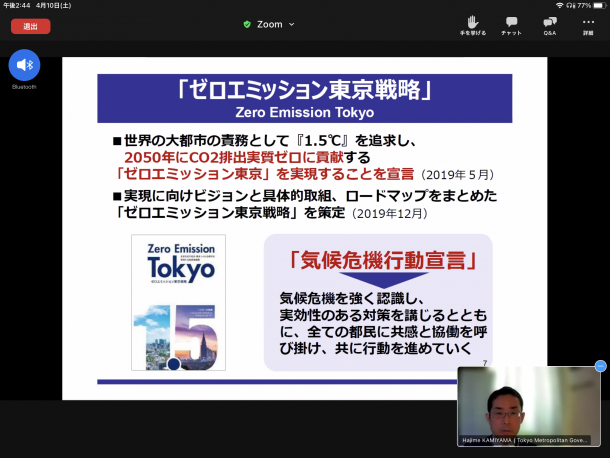
The final lecture on decarbonization through carbon pricing was delivered by Professor Toshi Arimura, both the director of WIAS and an academic at the Faculty of Political Science and Economics. “The efforts to addressing environmental issues have met with little success because there was a lack of involvement and contribution by the commercial market. By inviting the participation of the commercial market through the introduction of carbon pricing, we get closer to solving these issues,” said Professor Arimura as he shared how carbon pricing is logical and effective, yet requires low cost to implement. “However, despite its benefits, the implementation of carbon pricing in Japan is not progressing well compared to other countries.”
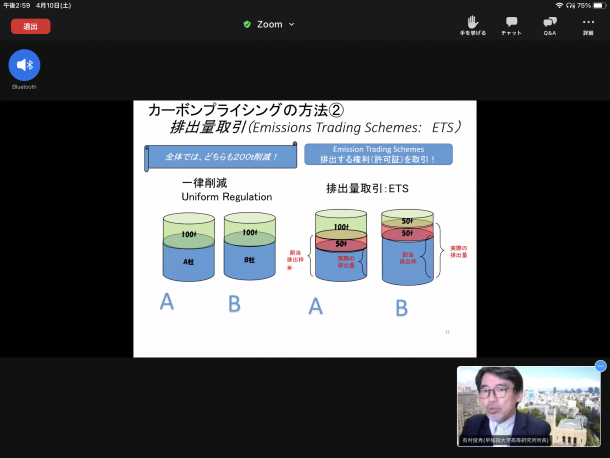
At the end of the symposium, Professor Ayu Washizu, director of IASS and professor at the Faculty of Social Sciences, addressed the participants with the following closing remarks. “I hope you would all acquire a wide range of knowledge and develop an intellectual resilience during your studies in university. Additionally, with this intellectual resilience and the flexible sensitivity of your generation, I hope you would strive to become an individual who could tackle and solve the climate and environmental issues ahead of us.”
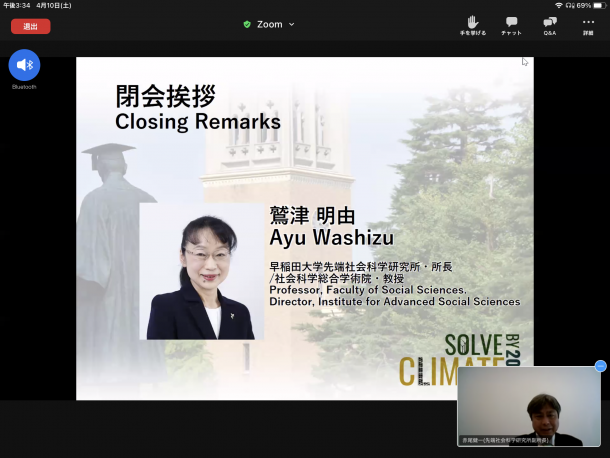
The full symposium can also be viewed online on YouTube.


